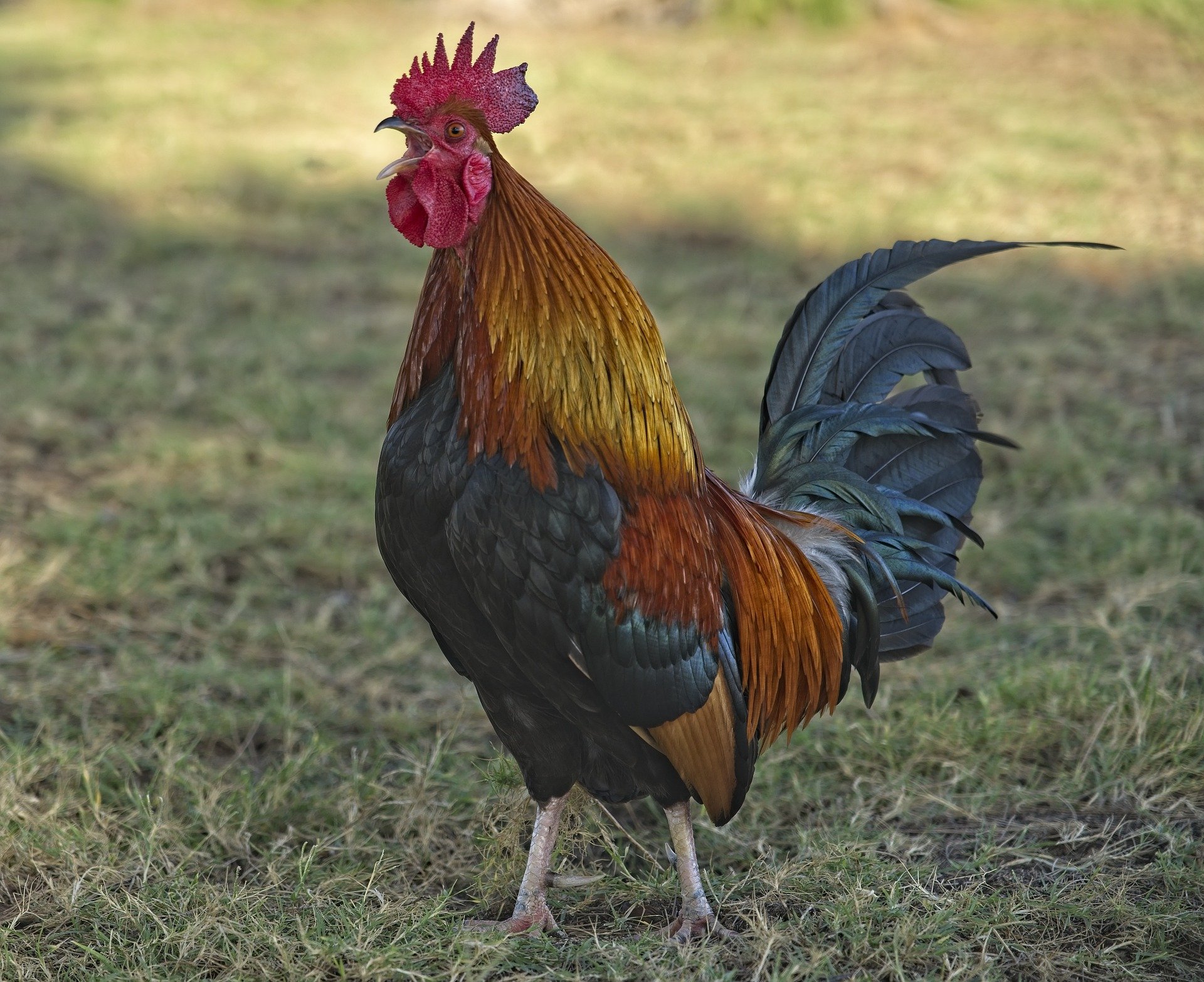When Do Roosters Start Crowing
You hatch a load of fluffy chicks. There’s cuteness overload as they begin to grow and you fall in love with them. And then … they turn into roosters and start ruining your life.
That’s a slight overstatement, but for many of us having a rooster in our coop isn’t always ideal. Depending on your zoning, it may not even be legal. Personally I love the sound of a cockerel crowing and it’s inevitable that if you hatch chicks, there may be a rooster or two. Even if you buy a breed of chicks that can be gender identified at birth, there may accidentally be a cockerel. So it’s important to know when they might start crowing so you can make arrangements, whether that’s rehoming or dispatching them for food before your neighbours get too annoyed.
WHEN DO ROOSTERS START CROWING
Young roosters all develop at different speeds and I’ve known them to start crowing as early as a couple of months, or stay silent for almost a year. However, on average, your cockerels will begin crowing at four or five months old. This is the same kind of time that birds will start to produce their saddle feathers, grow their comb and exhibit more male behaviours.
THE EARLY CROW
If you’re worried about having roosters in your coop, then fear not; cockerels will not go from being quiet one day to full-on crowing the next. Like all of us, they have to learn to talk and it can take them days, or even weeks, to find their full voice.
Initially, their crowing may sound like a strange exhaled wheeze. This often extends into several syllables, then a half-hearted strained crow and finally the full cockle-doodle-do. This process takes some time and this gives you time to decide what to do with your boys. This might be to rehome them or to eat them. Even if you intend to integrate them into your coop, it’s a good idea to keep note of which boys are maturing early. You may want to split them into bachelor groups (a process that often results in less fighting), or to move them into small hens and cockerel groups.
WHY DO ROOSTERS CROW?
Roosters crow for a variety of reasons, but the main three are:
Challenge other males
Attract females
Maintain contact with other groups
You may also find that cockerels will make a screaming noise when they detect a threat such as a hawk flying overhead. Males in the same group may crow loudly to one another as a way to assess whether to challenge each other. You’ll even find some low rank roosters in groups will not crow at all, knowing they will not be able to win in a fight. A loud crow can also attract hens. Crowing also keeps cockerels in contact with other groups; you’ll sometimes hear a round-robin crow as males from various coops call back and forth.
I hope that’s helped answer your questions about cockerels! I wish you good luck; roosters can be charming boys to have around the place. There’s nothing like hearing a cockle-doodle-doo on a farm, and hearing a young chick growing his voice, is a seriously fun experience.
☕ Enjoyed and found this article useful? Please consider buying me a virtual Coffee. This helps support the content I'm creating, the animals on the farm and the rewilding projects I'm building to help create an oasis for wildlife.








